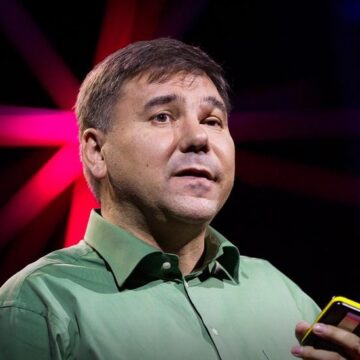In the age of migration the important characteristic of many of Europe’s populist parties is not that they are national-conservative but that they are reactionary. Many Europeans are gripped by fears of migration and technology, which pose a threat to their identity and economic future. The response to this has been anything but calm. As the political commentator Mark Lilla notes, for the reactionaries, “the only sane response to apocalypse is to provoke another, in hopes of starting over”.
Nobody represents the new reactionary spirit in Europe better than Viktor Orban. In a recent speech the Hungarian prime minister declared that the “historical question” we face today is whether “Europe [will] remain the continent for Europeans”. In a dig at western Europeans he added for good measure that “twenty-seven years ago here in central Europe we believed that Europe was our future . . . today we feel that we are the future of Europe”.
His words underscored fears of a more assertive and chauvinistic politics emerging from formerly communist central Europe with the potential to cause instability across the EU bloc and the wider continent. Next to Mr Orban’s Hungary, the right-of-centre Polish government has been raising concerns with an increasingly nationalistic and authoritarian agenda.
But is illiberal Hungary really the future of Europe? And could Mr Orban succeed in re-making the union?
It was Hungary’s resistance to German chancellor Angela Merkel’s open door policy towards refugees in 2015 that swept Mr Orban to the centre stage of European politics. Keeping migration as the defining issue in continental politics remains critical for him, especially now that the number of migrants has decreased and the EU has, rightly, tightened its migration policies.
The Orban plan is to use the anxiety caused by the refugee crisis to push the European People’s party grouping of centre-right parties in the European Parliament to adopt positions usually associated with the far right. “Christian democratic parties in Europe have become un-Christian: we are trying to satisfy the values and cultural expectations of the liberal media and intelligentsia,” Mr Orban said in his speech.
He senses an opportunity in the weakness of much of Europe’s centre-right establishment. In France it is in disarray after its defeat in the presidential elections; in Italy it lacks a popular leader; and in Spain it is preoccupied with keeping the territorial integrity of the country. Mr Orban hopes to snake through and re-make the European centre right on the model of his populist Fidesz party. And by becoming the leader of the European right he would become the spokesman of a new Europe.
It is undoubtedly a bold vision, and one to which Mr Orban brings ruthlessness and ambition. However, the smart money is unlikely to bet on his success.
Angela Merkel, German chancellor and head of Europe’s biggest centre-right party, will most likely win parliamentary elections next month. Instead of taking control of the EPP, Fidesz risks being expelled from it. Mr Orban may speak about the relevance of Christianity, but the truth is that his major opponent on the migration issue is not George Soros, the Hungarian-born hedge fund billionaire and Orban critic, but Pope Francis. The reason Christianity is at the root of the European project is that it is a religion with universalist soul.
The changing political dynamics in Europe are also no longer in his favour. The election of President Donald Trump and the vote for Brexit have made many Europeans more resistant to the charms of radical rightwing politics. Hungary and Poland are increasingly isolated not only in the EU but also closer to home. While central Europe speaks with one voice when it comes to migration, the Czech Republic and Slovakia are distancing themselves from the style and tone of politics of their Hungarian and Polish neighbours.
Mr Orban has also misread Mr Trump. Much of the Hungarian leader’s European strategy was based on the expectation of a strategic alliance between Washington and Moscow with Mr Trump and his Russian counterpart Vladimir Putin co-leading an anti-globalisation revolution. Events took a different turn.
Finally, what makes Mr Orban’s Hungary an unlikely role model is the fact that while the prime minister is preoccupied with fighting Brussels and Berlin, hundreds of thousands of his fellow citizens have decided to leave the country in the last decade. A country that holds ever-decreasing appeal to its own people will struggle to position itself as the model of Europe’s future. Fears of Mr Orban are legitimate, but also overblown.










